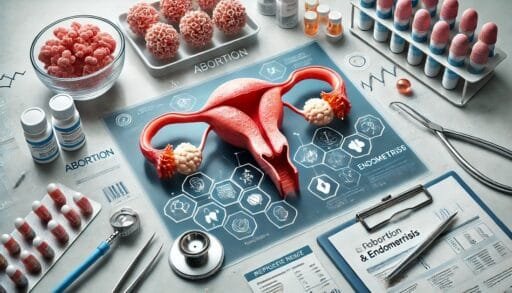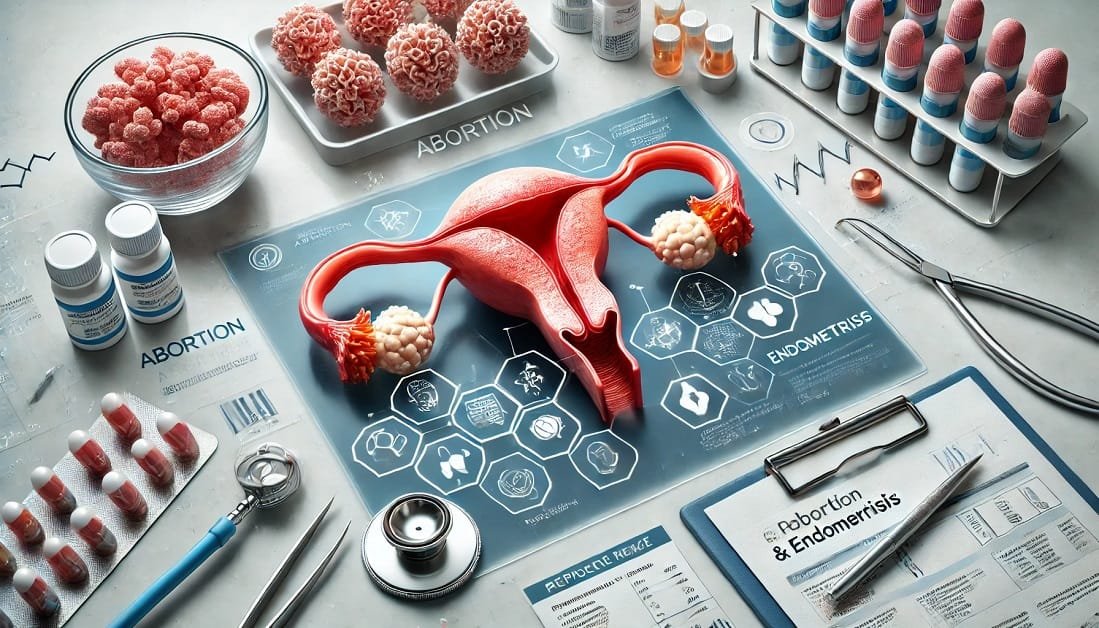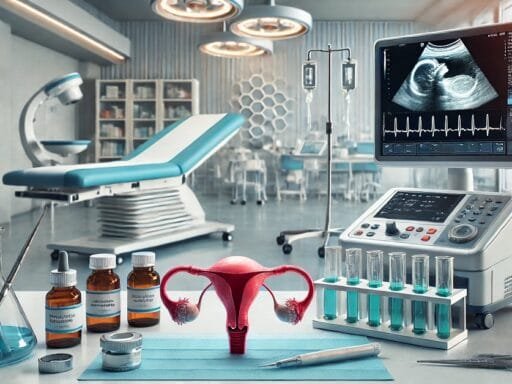Introduction
When it comes to reproductive health, many women face the challenges of conditions like endometriosis. At the same time, women who have experienced an abortion may wonder about the potential long-term effects on their health, including how it could influence conditions like endometriosis. The connection between abortion and endometriosis is a topic of growing concern and curiosity, especially as medical research continues to explore the relationship between the two.
Endometriosis, a condition where tissue similar to the lining inside the uterus begins to grow outside the uterus, affects millions of women worldwide. It can cause chronic pain, infertility, and other serious health issues. For women who have undergone an abortion, it’s natural to wonder if the procedure could exacerbate symptoms or even contribute to the development of endometriosis.
The question of whether abortion and endometriosis are linked is not just about medical curiosity; it’s about empowering women with the knowledge they need to make informed decisions about their health. Understanding this connection is essential, as women with endometrial conditions may be at a higher risk of complications during and after an abortion. While studies continue to investigate the exact relationship between abortion-related endometriosis symptoms, many women may experience a shift in their reproductive health after an abortion.
This blog will delve into the possible impacts that abortion and endometriosis may have on one another, providing answers to common questions and shedding light on the broader implications for women’s health. Whether you’ve experienced an abortion or have been diagnosed with endometriosis, it’s important to understand how these conditions may interact to guide your healthcare choices moving forward.
Table of Contents
What is Endometriosis?
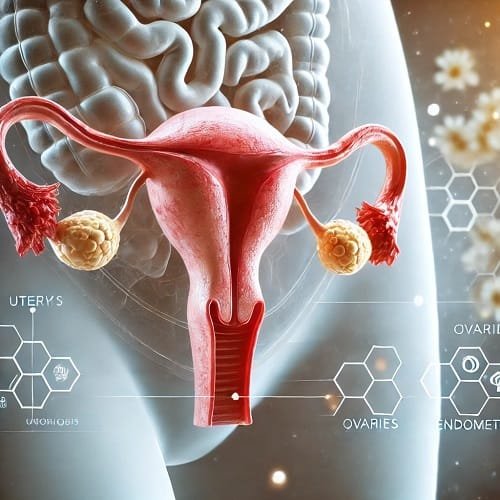
Endometriosis is a chronic medical condition that occurs when tissue similar to the lining of the uterus, called the endometrium, grows outside the uterus. This can involve the ovaries, fallopian tubes, and other organs in the pelvic region. Women with endometriosis may experience a variety of symptoms, the most common being chronic pain, particularly during menstruation. This condition can also cause heavy periods, pain during intercourse, and in some cases, infertility.
While the exact cause of endometriosis remains unclear, several factors are believed to contribute to its development. These include genetic predispositions, hormonal imbalances, and immune system dysfunctions that may prevent the body from recognizing and removing endometrial-like tissue growing outside the uterus. Environmental factors and lifestyle choices may also play a role in the development and progression of endometrial conditions.
The impact of endometriosis on a woman’s health goes beyond just physical symptoms. It can affect emotional well-being, quality of life, and relationships. The chronic pain associated with endometriosis can lead to depression, anxiety, and feelings of isolation. Furthermore, women with this condition may face difficulties when trying to conceive, as endometriosis can interfere with fertility.
Understanding endometriosis and abortion is essential, particularly for women already dealing with reproductive health issues. The potential impact of an abortion on a woman with endometriosis can complicate existing symptoms or even trigger new ones. For instance, the hormonal changes that occur during and after an abortion might influence the progression of endometrial conditions, potentially worsening symptoms like chronic pain. Given these complexities, it’s important to consider how abortion and endometriosis might interact in terms of long-term health outcomes.
The Connection Between Abortion and Endometriosis
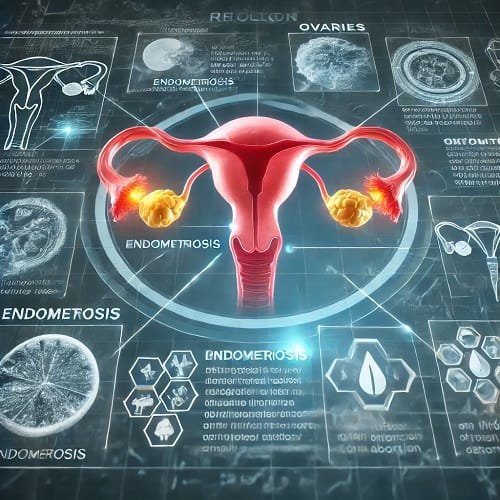
The link between abortion and endometriosis has been a subject of ongoing debate and research in the medical community. While the exact connection remains inconclusive, several studies have suggested that women with endometriosis may experience changes in their symptoms following an abortion. These changes can include an intensification of abortion-related endometriosis symptoms or, in some cases, the worsening of existing conditions.
Some studies suggest that abortion may have a temporary or long-term impact on the progression of endometriosis, particularly because of hormonal shifts during the procedure. When an abortion is performed, hormonal levels, especially estrogen, undergo significant changes. This fluctuation can potentially alter the behavior of endometrial tissue. For women with endometriosis, this could lead to an increase in inflammation or the growth of additional endometrial tissue outside the uterus, exacerbating pain or discomfort associated with the condition.
The impact of abortion on endometriosis may also be influenced by the type of abortion procedure performed. For example, a surgical abortion could introduce a risk of scarring or tissue damage, potentially affecting the pelvic organs, which might make endometriosis symptoms more severe. On the other hand, medical abortion, which involves medication to end a pregnancy, may trigger hormonal changes that can alter the menstrual cycle and, consequently, the symptoms of endometriosis.
Another aspect to consider is that the stress and physical strain of undergoing an abortion may also play a role in triggering or exacerbating post-abortion endometriosis. The body undergoes significant physical changes during the process, and for women with endometrial conditions, the added stress could worsen symptoms like pelvic pain, heavy bleeding, and digestive issues.
Although the link between abortion and endometriosis is not fully understood, experts agree that women with endometriosis should closely monitor their symptoms after an abortion. Regular follow-up visits with a healthcare provider can help detect any worsening of endometriosis symptoms and ensure that appropriate treatments are put in place to manage pain and other complications.
Ultimately, while more research is needed to fully grasp the interaction between abortion and endometriosis, understanding the potential risks and changes in reproductive health is crucial for women facing these issues.
Risks and Symptoms of Endometriosis After Abortion
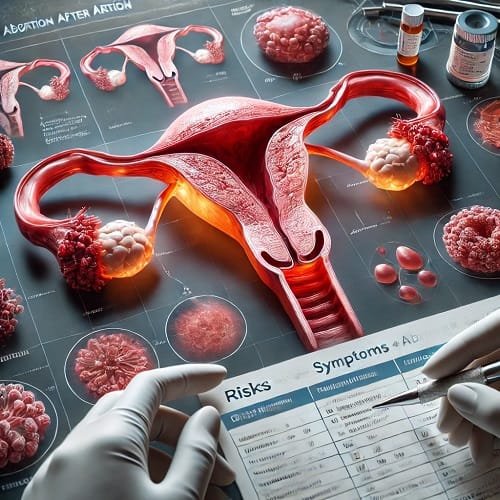
For women with endometriosis, the period following an abortion can be a time of heightened vulnerability. While the procedure itself is generally safe, there are potential risks and symptoms that may emerge or intensify in the aftermath. These symptoms of endometriosis post-abortion can affect both physical and emotional well-being, sometimes making existing issues worse.
One of the most common symptoms of endometriosis post-abortion is chronic pain, which may worsen after the procedure. This can include sharp, stabbing pain in the pelvis, particularly during menstruation or sexual intercourse. Many women with endometriosis already experience this kind of pain, but it can become more pronounced after an abortion due to the hormonal changes that occur during the procedure. Hormonal imbalance—a common outcome of abortion—can exacerbate the inflammation in the pelvic area, leading to more intense cramping and discomfort.
Another risk following an abortion is an increase in heavy bleeding or irregular periods. Women with endometriosis are already prone to heavy or prolonged periods, and an abortion can sometimes trigger more severe bleeding. This can make daily activities challenging, leading to exhaustion, anxiety, and a reduced quality of life. For women already struggling with endometriosis, the physical toll of heavy periods combined with the emotional impact of an abortion can significantly affect mental health and emotional stability.
Additionally, for women who have struggled with infertility due to endometriosis, an abortion may temporarily or permanently affect fertility. While the direct link between abortion and endometriosis and infertility is not definitively proven, the damage or inflammation to the reproductive organs may have a lasting effect on the ability to conceive.
Ultimately, endometriosis after abortion can cause a significant impact on daily life. The heightened chronic pain, unpredictable heavy periods, and emotional toll of managing a complex health issue may make it essential for women to seek ongoing support from healthcare providers. Regular monitoring of symptoms and personalized treatment plans can help improve reproductive health and quality of life in the aftermath of an abortion.
ALSO READ
Is Endometriosis a Disability? Understanding the Impact
Heating Pad for Endometriosis Pain: How It Provides Relief
Castor Oil for Endometriosis: Proven Benefits & Uses
Managing Endometriosis After Abortion
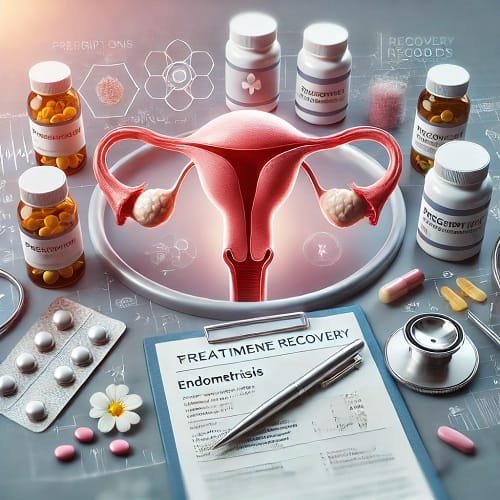
For women with endometriosis, managing their condition after an abortion is crucial to minimizing symptoms and maintaining overall reproductive health. While the procedure itself can impact hormonal balance and exacerbate existing issues, there are several ways to manage endometriosis after abortion and improve quality of life. By combining medical treatments with lifestyle adjustments and consistent follow-up care, women can take control of their health and navigate this challenging time.
One of the first steps in managing reproductive health after an abortion is seeking professional healthcare. Early endometriosis diagnosis after abortion is essential for tailoring the best possible treatment plan. Women experiencing worsening pain, heavy periods, or changes in fertility should consult with their doctor to assess whether their symptoms are linked to endometriosis or other post-abortion complications. A thorough examination and imaging tests, such as ultrasounds or laparoscopy, can help pinpoint any underlying issues and allow for timely intervention.
In terms of medical treatments, healthcare providers often recommend pain management strategies to reduce chronic pain and discomfort. Nonsteroidal anti-inflammatory drugs (NSAIDs), like ibuprofen, can provide relief from pain, but more intensive treatments may be required for severe cases of endometriosis. Hormonal therapy, such as birth control pills, progestins, or GnRH agonists, can help regulate the menstrual cycle and reduce hormonal imbalance that could exacerbate endometriosis symptoms.
Additionally, post-abortion care should include lifestyle adjustments. Regular exercise, stress management techniques, and a balanced diet can all contribute to better hormonal balance and help mitigate the effects of endometriosis. Reducing stress through yoga, meditation, or counseling can also be effective, as emotional well-being is closely linked to physical health, especially when dealing with a chronic condition like endometriosis.
For women facing fertility issues, it’s essential to monitor reproductive health closely after an abortion. Seeking guidance from a fertility specialist can help identify any complications that might be affecting the ability to conceive, and early intervention can improve outcomes. Overall, maintaining a close relationship with healthcare providers, undergoing regular follow-ups, and adhering to a comprehensive treatment plan are essential components of managing endometriosis after abortion and ensuring the best possible long-term health.
Understanding the Long-Term Effects on Fertility and Reproductive Health
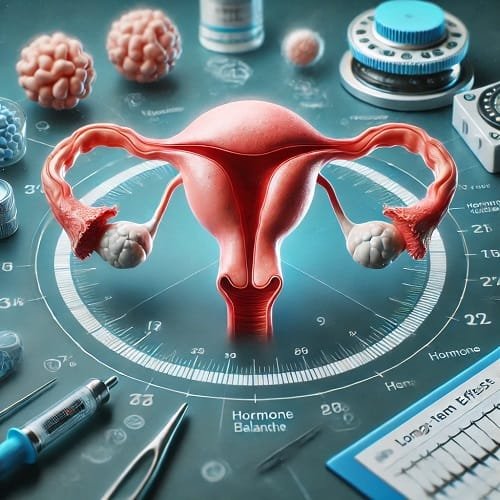
For women with endometriosis, understanding the long-term effects of abortion on fertility is essential to make informed decisions about their reproductive health. While abortion is generally considered a safe procedure, its potential impact on a woman’s ability to conceive—especially for those already dealing with endometriosis—can be a concern. The relationship between abortion and infertility risks is complex, and it is important for women to be aware of the potential implications for future pregnancies.
One of the key factors influencing long-term reproductive health is how abortion may interact with existing endometrial conditions. For women with endometriosis, the inflammatory processes associated with the condition may worsen following an abortion, potentially leading to scarring or damage to the reproductive organs. This could complicate future pregnancies and increase the likelihood of fertility issues. In addition, the hormonal fluctuations that occur during an abortion could impact the function of the ovaries or the fallopian tubes, further affecting fertility.
The effects of abortion on fertility can vary from woman to woman, depending on the severity of endometriosis and the type of abortion procedure performed. In some cases, women with endometriosis may experience no noticeable impact on their fertility, while others may face challenges when trying to conceive. Endometriosis and infertility often go hand in hand, and an abortion can exacerbate existing fertility problems by disrupting hormonal balances or causing damage to the uterine lining.
Expert insights emphasize the importance of closely monitoring reproductive health after an abortion. Women who have a history of endometriosis should seek fertility evaluations if they experience difficulties conceiving. Fertility treatments such as in vitro fertilization (IVF) or surgical interventions to remove endometrial tissue may be necessary to address infertility caused by endometriosis. For those looking to preserve fertility, early consultation with a fertility specialist is recommended to explore available treatment options and create a tailored plan to improve the chances of conception in the future.
Post-Abortion Care for Women with Endometriosis
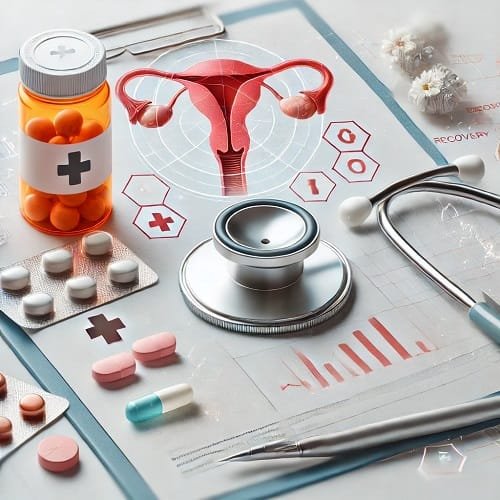
For women with endometriosis, post-abortion care is a critical aspect of the recovery process. While an abortion can provide necessary relief for some, it can also trigger physical and emotional challenges, particularly for those already struggling with endometrial conditions. Proper care and attention during the recovery phase can help manage these challenges, reduce risks, and promote better reproductive health moving forward.
Medical care is the first priority after an abortion, especially for women with endometriosis. These women may experience more intense symptoms, such as pelvic pain, cramping, or hormonal imbalance, as their bodies adjust to the changes caused by the procedure. Pain management, monitoring for any signs of infection, and ensuring proper healing of the uterine lining are essential during this period. Regular follow-ups with healthcare providers are key to detecting complications early, particularly since women with endometriosis may have unique recovery needs.
Emotional and psychological support is just as important in post-abortion care. Women with endometriosis may feel heightened emotional distress during the recovery process due to the physical toll the condition already takes on their body. Anxiety, depression, and feelings of isolation can be more intense for those experiencing chronic pain and hormonal fluctuations. Support from mental health professionals or counseling services can be beneficial in addressing these emotional challenges.
Finally, continuous monitoring of symptoms is vital in the post-abortion care phase. Women with endometriosis should be vigilant in tracking any changes or worsening of symptoms. If persistent pain or complications arise, seeking prompt healthcare support can help manage these concerns and provide relief. By ensuring comprehensive care during recovery, women with endometriosis can foster better reproductive health and ultimately achieve better outcomes.
Frequently Asked Questions (FAQ)
Here are some common questions that women with endometriosis may have regarding abortion and its potential impact on their reproductive health. These answers can help clarify the relationship between endometriosis and abortion, addressing concerns about symptoms, risks, and management.
1. Can abortion worsen endometriosis?
While research on this subject is ongoing, some studies suggest that abortion could potentially worsen endometriosis symptoms in certain women. The procedure can cause hormonal imbalance, which may exacerbate endometrial conditions and increase inflammation. However, the impact varies depending on the individual’s health history and the severity of their endometriosis. It’s important to consult with a healthcare provider to understand the specific risks and potential outcomes for your case.
2. What are the risks of endometriosis after an abortion?
After an abortion, women with endometriosis may experience increased chronic pain, heavier menstrual cycles, or complications related to fertility. The abortion-related complications can include scarring or injury to the reproductive organs, which may affect future pregnancies or worsen endometriosis symptoms. Monitoring symptoms closely during the recovery phase is crucial, and seeking prompt medical attention if issues arise is essential for better reproductive health.
3. How can women manage endometriosis post-abortion?
Managing endometriosis after abortion typically involves a combination of medical treatments and lifestyle adjustments. Pain management, hormonal therapies, and physical therapy can help alleviate symptoms. Lifestyle changes such as stress management and regular exercise can also aid in balancing hormones and improving overall well-being. Early endometriosis diagnosis after abortion and continuous medical support are key to effective management.
4. Is there a direct link between abortion and infertility in women with endometriosis?
There is no direct evidence that abortion causes infertility in women with endometriosis. However, endometriosis and infertility are closely related, and the potential for future fertility issues could increase after an abortion if the condition is not managed effectively. Women with endometriosis should consult with a fertility specialist if they experience difficulties conceiving after an abortion. Early interventions can help address underlying issues and improve chances of conception.
Conclusion
In conclusion, understanding the relationship between abortion and endometriosis is essential for women navigating their reproductive health. While there is no definitive answer on how abortion may impact endometriosis, it is clear that the procedure can influence both physical and emotional health, especially for women already dealing with endometrial conditions. The long-term effects of abortion on reproductive health can vary, and it’s crucial for women to monitor their symptoms and seek medical advice to ensure proper care.
Managing endometriosis post-abortion involves a combination of professional treatment, lifestyle adjustments, and emotional support. Women experiencing persistent symptoms or concerns related to endometriosis and abortion should not hesitate to consult healthcare providers to address any challenges they may face. Empowering women to take control of their health through informed decisions and self-care is key. It’s important to remember that every woman’s journey is unique, and seeking personalized medical advice can lead to better outcomes in managing endometriosis and ensuring long-term reproductive health. With the right support, it is possible to navigate these challenges and maintain a healthy, fulfilling life.
